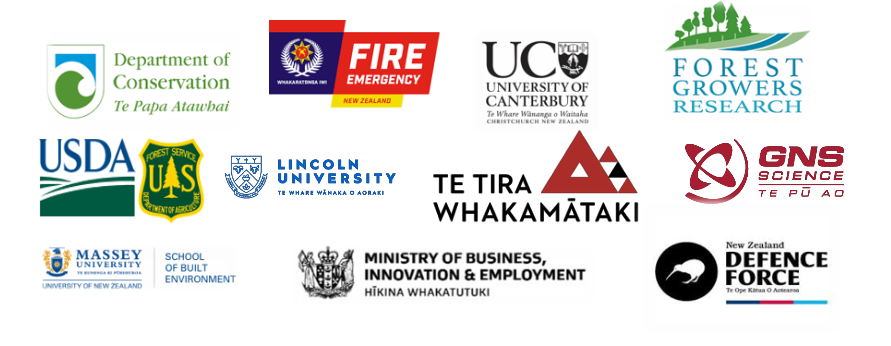Wildfire Research
Mission: Develop science and technology to better protect life and property and to manage fire in the landscape
![]()
Scion’s Fire and Atmospheric Sciences Team (FAST) is New Zealand's leading wildfire research group. We focus on understanding fire behavior in diverse and complex environments and weather conditions using scientific expertise, operational experience, and indigenous knowledge. By studying fuel types and atmospheric conditions and collaborating with communities, we aim to develop science and technology to protect lives, property and landscapes while effectively managing fires. Our goal is to safeguard communities and landscapes through innovative research and help NZ to prepare for living in a wildfire prone environment.
Our team includes experts in fire behaviour and ecology, emerging technologies, atmospheric modeling, human factors and community resilience. With strong national and international partnerships, we conduct pioneering research relevant to New Zealand's unique landscape and advance global understanding of fire behaviour.
-
Our People
-
What we do
-
In the News
Why is Fire Science Important?
Climate change is increasing the risk of wildfires. Recent years have seen some of the warmest global temperatures on record, contributing to extreme fire behaviour not typically associated with New Zealand. Notable examples of these have been wildfires in Lake Ōhau, Otago and the Port Hills and McKenzie Basin in Canterbury.
The economic impact of wildfires in New Zealand is significant. Each year, wildfires affect thousands of hectares of land, resulting in considerable damage to infrastructure and public property. However, the total cost often extends beyond reported figures, encompassing factors such as damage to rural and conservation land, future suppression efforts, insurance claims and potential loss of life, and ecosystem values and services, which are not easily captured or quantifiable.
Wildfires present significant risks to communities. As temperatures rise and populations increase, we expect these costs to increase further highlighting the urgency for people to be equipped with the knowledge and skills necessary to proactively mitigate and manage fire risks. Engaging with and educating communities, organisations and policymakers about fire safety is paramount for reducing these risks.
Conventional fire management strategies may struggle to contain these intense fires in the future, risking irreparable damage to New Zealand's delicate ecosystems and biodiversity. It's essential for individuals and communities to recognise this interconnectedness. By taking action to preserve natural habitats, support primary industries, and protect native species reliant on these ecosystems for survival, we can collectively safeguard our environment.
Key stakeholders
Scion works closely with the following agencies:

